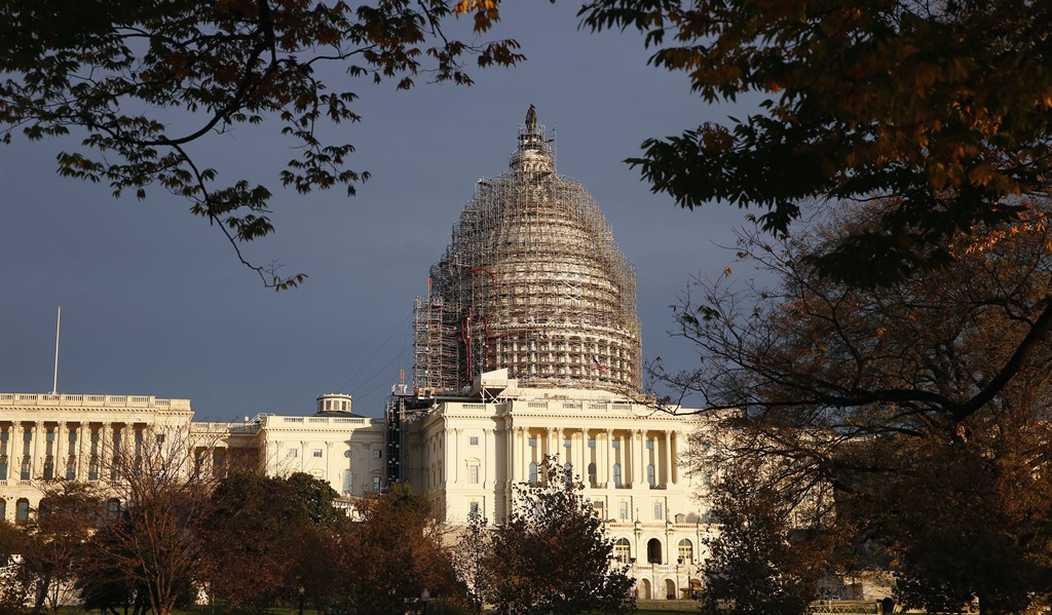They often call Washington the Hollywood for ugly people, but that hasn’t stopped Congress from bringing celebrities to Washington to testify on key issues. It’s almost if they believe that appearing in a movie makes one a policy expert.
Actor Ron Howard testified on U.S. space exploration after directing “Apollo 13.” Jessica Lange, Sissy Spacek and Jane Fonda appeared before a House farm task force on the financial stress experienced by farm families due to their roles in the movies "Country," "The River" and "The Dollmaker.” It’s one thing to use actors and actresses to focus the public's attention on an issue of public policy, but few members of Congress would actually attempt to legislate based upon a movie script. Rep. Stephen Lynch (D-MA) appears to be unable to distinguish between fact and fiction.
Lynch appears to be fixated on the movie “The Big Short,” which details the bursting of the housing bubble during the Great Recession. Written by Peter Lewis, the movie does a decent job describing how Wall Street, the mortgage industry, the government, and yes, individual consumers each pushed the "American Dream" too far resulting in the 2008 collapse of the housing market. However, in typical Hollywood fashion, the film leaves out much of the U.S. Government’s critical role in fomenting the crisis.
It is difficult to imagine the crisis happening without the Federal Reserve pushing interest rates well below their market value, incentivizing irresponsible consumer borrowing and commercial lending across the country. Washington policy makers then one-upped the Fed by causing government sponsored enterprises Fannie Mae and Freddie Mac to purchase over 75 percent of all subprime loans, subsidizing mortgages for people who, under true free market banking, would never have qualified to borrow. (Subprime is defined as "unqualified to receive funds".
Recommended
The government’s loose fiscal and monetary policy signaled to bankers that it was safe to lend to low-income borrowers. Congress held bipartisan hearings demanding ever-greater levels of such loans. In turn, the financial industry doled out more loans than usual, leveraging existing debt to secondary market purchasers by packaging debt from multiple mortgages into complicated and confusing financial instruments. So complex were the terms associated with these government-incentivized packages that even credit-rating agencies were confused as to where the risk lay. As a result, they were forced to assess ratings which were based on the underwriting by the Fannie and Freddie.
Clearly, below-par credit ratings were merely one of a symptoms of the convoluted and irresponsible financial sector that the government created. Nonetheless, Rep. Lynch is now trying to turn his interpretation of the movie into legislation designed to shift the blame onto America’s credit agencies and away from the government.
After the downfall of the housing market, Congress responded by passing the draconian Dodd-Frank bill. This law created thousands of new regulations on the financial services industry, including credit rating agencies. The Dodd-Frank Act imposed a new regulatory scheme on rating agencies, in part by tightening existing regulation, and set the stage for more regulation to come — all with the goal of holding rating agencies accountable for the quality of their credit ratings.
Yet in Mr. Lynch’s alternate reality based only on watching “The Big Short”, none of this ever happened. He is engaging in a futile second war on the credit agencies, demanding more regulations as if Dodd-Frank was never passed.
Like Hollywood, some in Washington find it much more convenient to point the finger at the financial sector instead of looking in the mirror - or reading their own legislative history. This is precisely why, nearly one decade after the housing bubble’s burst, our economy has failed to markedly improve. By repeatedly placing the blame on symptoms instead of causes, members of Congress like Rep. Lynch are allowing the government to make the same mistakes over and over again — all while penalizing the financial sector for problems they didn’t create.
Perhaps it’s time for someone to draft a movie script of a real economic treatise — then maybe we'll finally see some true change come to Washington.

























Join the conversation as a VIP Member